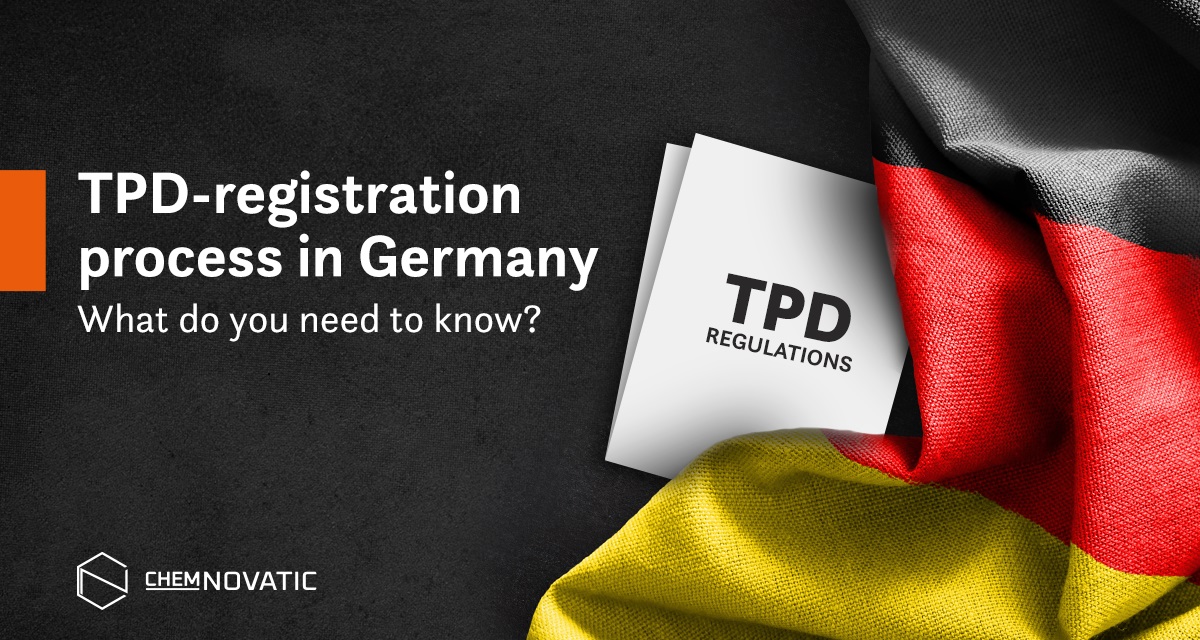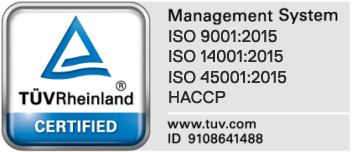
Germany is, undoubtedly, one of the leading e-liquid markets in Europe. According to statistics from 2021, there are around 1,5 million vapers in Germany, which stand for 2,1% of its adult population. However, in order for one to vape, vaping products have to get on the market first. This requires e-liquid registration, and there are certain requirements for it.
Before we jump to describing the requirements essential for vaping products registration on the German market, let’s remind some information about the very essential e-liquid regulation.
TPD – what is it?
Tobacco Products Directive (TPD) is a regulation present in each member country of the European Union. It came into force on 20 May 2016.
TPD covers cigarettes, roll-your own tobacco products, pipe tobacco, cigars, cigarillos, smokeless tobacco products, e-cigarettes, refill containers, novel tobacco products, and herbal products for smoking.
Moreover, the Tobacco Product Directive is a wide regulation, that not only concerns the products but also imposes obligations on manufacturers.
What laws does TPD apply to?
According to TPD, vape product manufacturers and importers of electronic cigarettes and e-liquids have to provide the competent authorities of the UE Member States with detailed information on, among others, the list of all components of these products and substances released as a result of using the product.
Another guideline that TPD carries is laboratory tests. It allows excluding from the sale any vape products that carry prohibited substances, such as carcinogens or heavy metals.
The Directive also regulates the matter of TPD-compliant e-liquid packaging, which we have already described in parts – 1st & 2nd. Be sure to check it!
Moreover, TPD does not allow the promotion of e-cigarette products in mass media such as television, radio, or the press.
Keep in mind, however, that the details of the mentioned guidelines are additionally regulated by each EU Member State at a national level. It means, that the requirements regarding packaging or advertising regulations may differ in various countries.
If you want to learn more about TPD, here you will find everything you need to know about Tobacco Products Directive. Keep in mind, that pure nicotine is also subject to TPD, and our PureNic 99+ is one of, if not the purest, on the market. Make sure to check it!
E-liquid registration process in Germany
As mentioned earlier, TPD requires producers to carry out laboratory tests. The results of them are then forwarded to Member States authorities, and this is done within the process of TPD registration, which takes place in the EU-CEG system, that has been created to notify e-liquid products.
What products fall under TPD in Germany?
Aside from nicotine-containing and nicotine-free e-liquids, in Germany, TPD covers also:
- shortfills & longfills
- CBD e-liquids
- e-liquid flavourings
What is important, in Germany nicotine pouches are considered a food product, consequently do not fall under Tobacco Products Directive.
If you are interested in nicotine pouches you can learn what are the reasons behind pouches’ popularity. Also, know that we have every necessary raw material, required in manufacturing, so make sure to check our offer or contact us at sales@chemnovatic.com!
E-liquid fees and taxes in Germany
There are no fees when it comes to e-liquids’ registration in Germany, however, taxes are a different matter. Since 1 July 2022, there is an excise tax covering TPD-related products. Although, had the products been manufactured or entered the market before that date, they can be sold without the tax till 13 February 2023.
As for the newer ones, the rate is 0,16 Euro/ml. This stake will last till 31 December 2023. After that, it will grow for a year to 0,20 Euro/ml. Later, in 2025, the excise tax will be 0,26 Euro/ml, and beginning on 1 January 2026 it will grow to 0,32 Euro/ml.
Forbidden e-liquid substances in Germany
Although it may be common for taxes to differ in various countries, it’s not necessarily the same way with the substances e-liquids contain. Germany has their own, nationally regulated, list of forbidden substances forbidden in e-liquids. As examples, let us mention:
- Amino acids and modified amino acids approved for dietetic foods
- Bitter Almond Oil
- CMR substances
- Glucose (CAS: 50-99-7), fructose (CAS: 57-48-7 ), and galactose (CAS: 59-23-4)
- Ingredients, including processed ingredients, extracts, and oils from coffee and coffee beans
- L-Carnitine (CAS: 541-15-1)
As mentioned above, these are just exemplary, forbidden substances. The list is much longer and may still grow. Additionally, keep in mind, that there are more guidelines to follow when registering products on the German market. In case you need any help, we are there for you. Message us at sales@chemnovatic.com or click the banner below to learn about some e-liquid regulations in other countries.
Summary
E-liquid registration may be complicated unless one knows how to do it. Chemnovatic legal experts have learned this matter from scratch, having registered several hundreds of vape products, not only in Europe but also on other continents!
If you wonder what else one can not use in their e-liquids receipts, what elements are necessary on the packaging, or have any other questions regarding TPD registration, contact us at sales@chemnovatic.com. Do not hesitate also, if you need to register your products or consult any other regulatory case! You can also check e-liquid regulations in other countries.
Wspólnie rozwiniemy Twój biznes!
Zapisz się do naszego newslettera i otrzymaj bezpłatny dostęp do naszego kursu e-mailowego o surowcach do produkcji e-liquidów (i nie tylko!).
Żadnego spamu, przesyłamy tylko wartościowe treści.

















